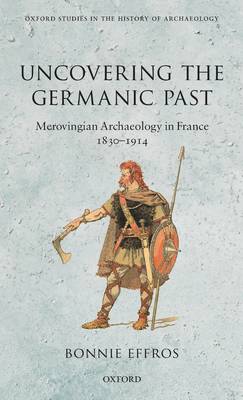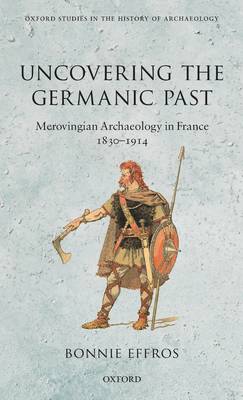
En raison d'une grêve chez bpost, votre commande pourrait être retardée. Vous avez besoin d’un livre rapidement ? Nos magasins vous accueillent à bras ouverts !
- Retrait gratuit dans votre magasin Club
- 7.000.000 titres dans notre catalogue
- Payer en toute sécurité
- Toujours un magasin près de chez vous
En raison de la grêve chez bpost, votre commande pourrait être retardée. Vous avez besoin d’un livre rapidement ? Nos magasins vous accueillent à bras ouverts !
- Retrait gratuit dans votre magasin Club
- 7.000.0000 titres dans notre catalogue
- Payer en toute sécurité
- Toujours un magasin près de chez vous
338,45 €
+ 676 points
Description
Uncovering the Germanic Past brings to light an unexpected side-effect of France's nineteenth-century Industrial Revolution. While laying tracks for new rail lines, quarrying for stone, and expanding lands under cultivation, French labourers uncovered bones and artefacts from long-forgotten cemeteries. Although their original owners were unknown, research by a growing number of amateur archaeologists of the bourgeois class determined that these were the graves of Germanic 'warriors', and their work, presented in provincial learned societies across France, documented evidence for significant numbers of Franks, Burgundians, and Visigoths in late Roman Gaul. They thus challenged prevailing views in France of the population's exclusively Gallic ancestry, contradicting the influential writings of Parisian historians like Augustin Thierry and Numa-Denis Fustel de Coulanges. Although some scholars drew on this material evidence to refine their understanding of the early ancestors of the French, most ignored, at their peril, inconvenient finds that challenged the centrality of the ancient Gauls as the forebears of France. Crossing the boundaries of the fields of medieval archaeology and history, nineteenth-century French history, and the history of science, Effros suggests how the slow progress and professionalization of Merovingian (or early medieval) archaeology, a sub-discipline in the larger field of national archaeology in France, was in part a consequence of the undesirable evidence it brought to light.
Spécifications
Parties prenantes
- Auteur(s) :
- Editeur:
Contenu
- Nombre de pages :
- 452
- Langue:
- Anglais
- Collection :
Caractéristiques
- EAN:
- 9780199696710
- Date de parution :
- 26-07-12
- Format:
- Livre relié
- Format numérique:
- Genaaid
- Dimensions :
- 142 mm x 216 mm
- Poids :
- 748 g

Les avis
Nous publions uniquement les avis qui respectent les conditions requises. Consultez nos conditions pour les avis.






